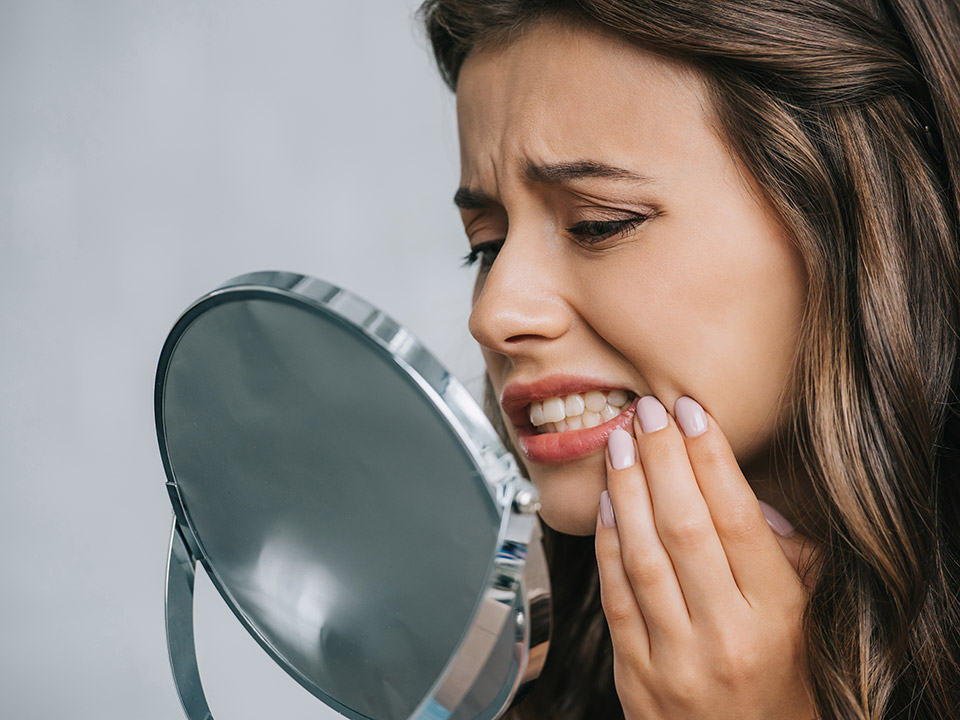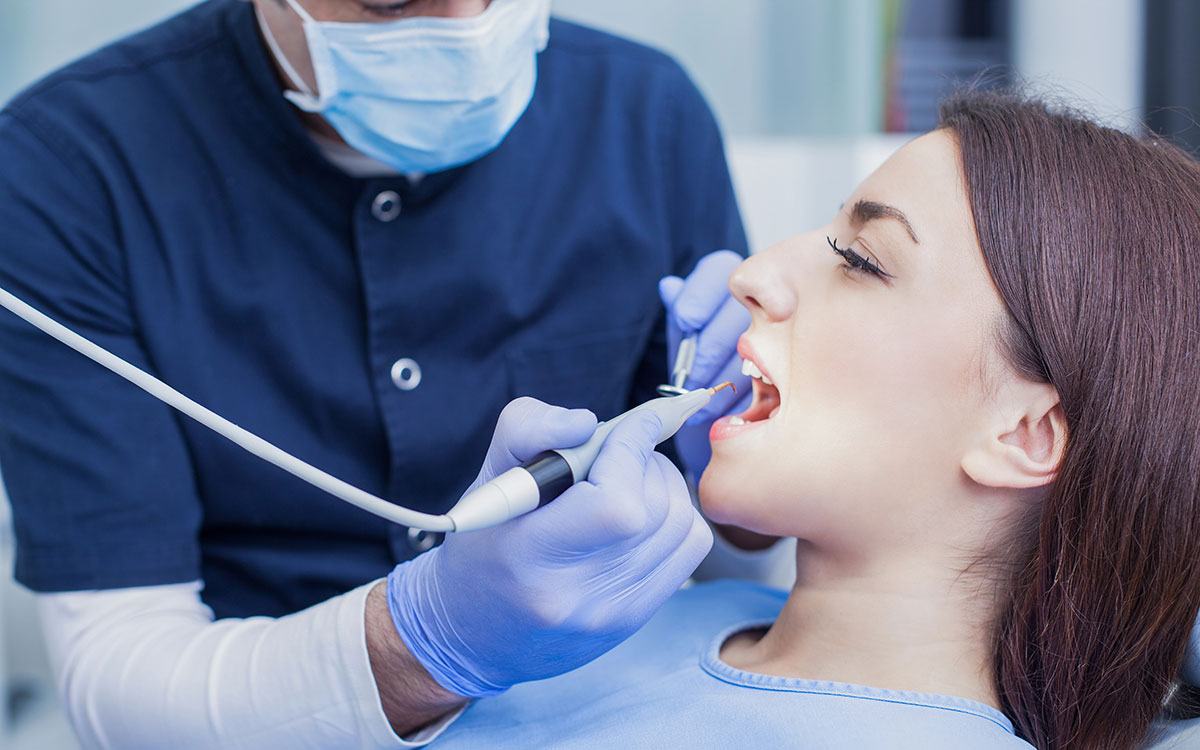Enamel is the thin outer layer that covers your teeth. It is responsible for your dazzling smile. Additionally, it is what makes the teeth strong. This is because enamel is the hardest substance in the body. Enamel is majorly made of minerals, making it stronger than your bones. However, this is not to say that your enamel is not vulnerable. Sadly, it can still sustain injury and erosion due to several factors.
What Erodes Enamel?
Acid is the number one enemy of your teeth’ enamel. And it occurs due to bacteria. Although you cannot see or feel them, bacteria live in your mouth. Most of them are good, but some are harmful.
The most common harmful one is streptococcus mutans. It lives on the tooth surface and gets into hard-to-clean areas such as crevices. This bacteria feeds on sugar content in the food that you eat. This process produces an enamel-eroding acid. Brushing your teeth removes bacteria and food particles from the teeth and crevices. Therefore, if you do not clean your teeth, you could end up with an eroded enamel. Additionally, some foods and beverages with high acidic content can erode the enamel over time. This includes soda and other fizzy drinks.
Signs of Enamel Erosion?
When your enamel starts to erode, you will experience some symptoms such as:
- Increased tooth sensitivity. If you have been experiencing increased tooth sensitivity, it can be due to enamel erosion. When the protective enamel erodes, it exposes the dentin. Dentin is softer and more sensitive. Therefore you will experience tooth sensitivity when consuming hot and cold foods or liquids. It can also occur when brushing your teeth.
- Pain. Along with sensitivity is pain. After a while, you will experience pain, especially when eating and drinking hot or cold foods.
- Dents of the surface of the teeth. Cupping is when indentations appear on the surface of the teeth when you bite and chew. It occurs when the enamel erodes. If not treated well, then it could lead to permanent damage.
- Yellow teeth. Another sign of enamel erosion is discoloration or yellowish teeth. The yellowish appearance of teeth is because the dentin becomes exposed after enamel erosion. The teeth will look more translucent and less shiny.
- Tooth decay and fracturing. Since enamel is the protective layer of the teeth, you are bound to have weaker teeth after the enamel erodes. Therefore, your teeth become more susceptible to decay and fracture.
After the enamel erodes, you become more susceptible to dental conditions. Therefore, expect to deal with tooth decay and other problems with your teeth.
So Can I Restore My Enamel?
The simple answer is no. once your tooth enamel is gone, you cannot grow it back or use products to regenerate it. The rumor circulating among many people is that toothpaste, fluoride, and other dental products can regrow the enamel. Sadly, this is a false rumor because the enamel is not living tissue. Therefore, you cannot naturally regenerate it. Erosion occurs when the enamel loses its minerals. You cannot naturally replenish these minerals. Furthermore, not even artificial elements can regrow enamel. Tubes of toothpaste and other dental products cannot regenerate the enamel.
The most they can do is protect and strengthen what is left. Therefore, you have to be meticulous with brushing your teeth and preventing tooth decay. Once your enamel is gone, you will have to undergo multiple procedures to retain the proper function of your teeth. Once you notice enamel erosion symptoms, the most you can do is strengthen the enamel. Keep reading to find out how you can do this.
What Can I Do Instead?
- Brushing with fluoride toothpaste. First, you need to switch to fluoride toothpaste to strengthen your enamel. Fluoride nourishes the teeth with minerals and nutrients to keep your enamel strong and healthy. Therefore, ensure that you use toothpaste with fluoride. This also applies to children, especially if they experience tooth decay or sensitivity.
- Using other fluoride dental products. If you use other dental products, ensure that they are also infused with fluoride. Again using fluoride-infused dental floss will gently feed your enamel nutrients for strength. Additionally, go for a fluoride mouth wash. Some counties also put fluoride in the water supply. Therefore, ensure that you drink tap water to get fluoride on your teeth.
- Avoiding harmful products. If you have symptoms of enamel erosion, ensure that you avoid harmful products. For example, stay away from teeth whitening products or other concoctions unapproved by the ADA. These could harm your teeth by further eroding the enamel. Do not use any products on your teeth unless prescribed by a certified dentist.
- Drinking lots of water. Next, sure that you drink a lot of water. Water ensures that your mouth is not dehydrated. It also washes away bacteria, preventing the formation of the enamel-eroding acid.
- Chewing sugar-free gum. Similarly, you can chew sugarless gum to stimulate saliva production in your mouth. Saliva helps to wash away bacteria and food particles from the mouth. This lessens the chances of acidity on the teeth.
- Changing your diet. Next, ensure that you stay away from acidic foods, especially if you develop symptoms of tooth decay. Stay away from soda and other fizzy soft drinks. It ensures that the acidic content does not harm your teeth. If you must drink them, use a straw to prevent direct contact with your teeth.
- Regular dental visits. And finally, ensure that you visit a dentist. Anyone with enamel corrosion will suffer from tooth decay and other oral health problems. Therefore, you will need regular dental checkups to ensure that your enamel does not erode further.
If you notice any symptoms of enamel erosion, ensure that you visit a certified dentist. It will safeguard against complete erosion of the protective layer.
Additionally, you could discuss ways to improve your overall dental health. Furthermore, you could bring up other dental problems you may be experiencing. Even if you are nervous, ensure that you visit a dentist regularly as recommended.







